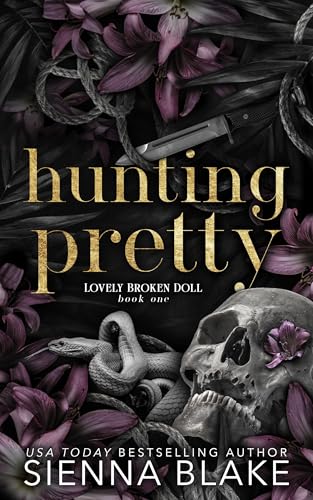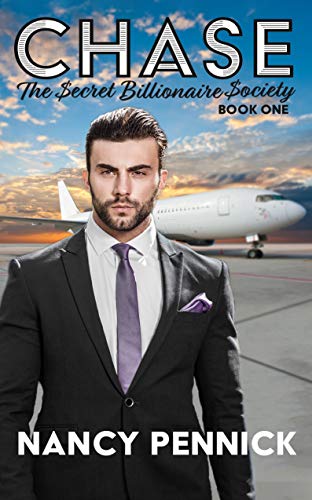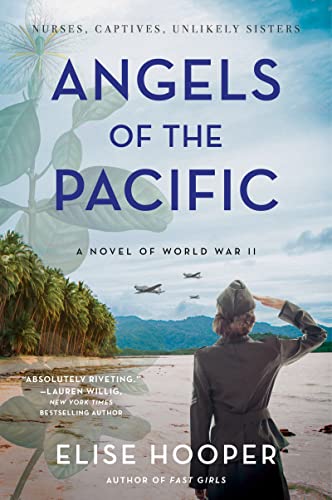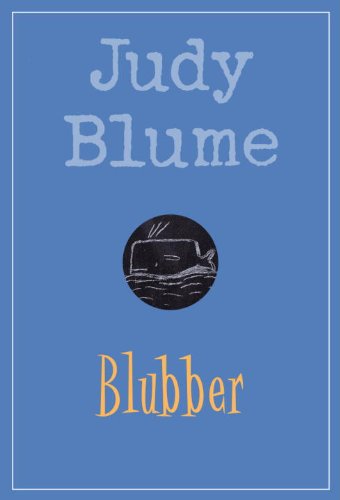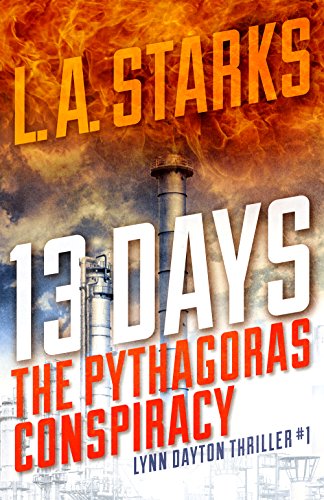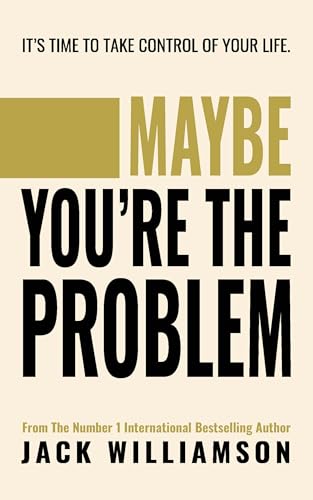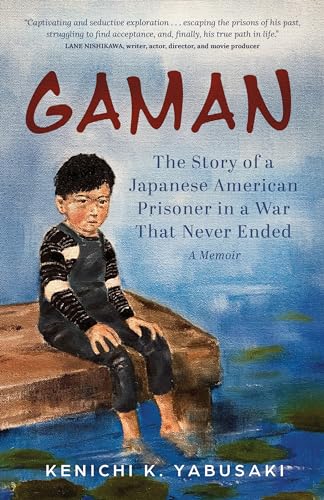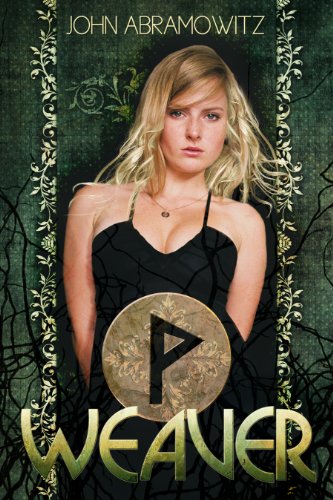“…one part science fiction, one part paranormal fantasy, and a whole lot of fun!…”
Travel into the wild world of John Abramowitz’ imagination with the first book in his compelling Weaver Saga sci-fi/fantasy series…
Weaver (The Weaver Saga)
by John Abramowitz
Fifteen-year old Alex Cronlord just met the boy of her dreams. Literally. Unfortunately, the dream involved him killing her. When she encounters him at her school the next morning, Alex understandably freaks out and her mother’s bizarre behavior only makes it worse. What Alex doesn’t realize is that she can see the future — which will get her into a whole lot of trouble.
Across town, FBI Agent Moira McBain and her partner Andy Hall investigate a series of house burnings in Dallas, Texas. When a clue leads them to the Cronlords, Moira discovers a disturbing link between Alex’s family and her own — a link which opens an old wound Moira has spent years trying to ignore.
Something is rotten in Dallas, Texas — something involving a secret society, children with extraordinary powers, and human-looking creatures who might literally be out of this world….
Welcome to a different kind of world-wide web.
5-star praise for Weaver:
Page Turner
“…captured me from the opening paragraph and sustained its tension throughout….The characters are rich, the plot engrossing. I heartily recommend to anyone who likes a good science fiction yarn.”
Great read! I can’t wait for more
“…Mr. Abramowitz has done an excellent job of pacing both story and character development so that the two are intertwined. There is no extra fluff in Weaver, each and every page advances the story and our relationship with the characters…”
an excerpt from
Weaver
by John Abramowitz
Prologue
Alex ran frantically over the uneven ground, her feet seeming to almost have a mind of their own as she raced desperately, not in any particular direction, but simply away. The first beads of sweat broke out on her forehead beneath the crown of golden-blonde hair, but Alex didn’t care, couldn’t care about that, nor about the burning feeling starting to blossom in the pits of her lungs. All she could think about was keeping as much distance as possible between herself and what was chasing her.
Snick! came the soft noise as one of her tennis shoes collided with a branch on the ground in front of her, snapping loose a twig from the branch as she fell forward, her face hitting the dirt. Alex cursed herself even as she fell – she’d been so focused on the simple act of moving ahead that she hadn’t thought to watch what was ahead. Always were a clumsy bitch. She rolled onto her back as fast as possible, scrambling to her feet as she saw the dark streak swoop ever closer to her.
It moved with almost inhuman speed, closing a full third of the gap between them just in the time it took her to get to her feet. Alex shrieked and leapt to one side. It was a wooded area, so there were plenty of trees to hide behind. She scrambled behind a trunk and hid. The black thing raced forward, stopping a mere few feet from the tree behind which she hid.
Alex’s heart raced, a pounding in her ears that she was sure her pursuer could hear. She waited a few moments in the barest silence, the only noise being a slight breeze rustling the leaves above her head. A brown leaf fell across her nose and cheek. She struggled to resist sneezing as it tickled her sinuses.
What seemed like eternities passed in utter silence.
CRASH. CRASH. CRASH. Alex’s heart continued to pound in her ears, intermixed with the soft squeak-squeak-squeaking sound of her pursuer’s shoes against the dirt and grass as he searched for her. Unable to bear it any longer, she risked a glance over her shoulder – and her heart nearly stopped as she saw him.
Her eyes followed his frame from the beaten-up tennis shoes, up the slender legs covered in the black denim pants, past the torso in the black t-shirt, with sleeves just short enough to show hints of his muscular upper arms, to the sculpted face and short, close-cropped brown hair. There was something almost angelic about his features, even now, as he hunted her. Slowly, his head turned in her direction, and she jerked her own head back behind the trunk, actually holding her breath to avoid detection.
“I know you’re here, Alex,” came his baritone voice, at once lilting and lethal. “I can feel you. I can smell you.”
Another eternity-long silence in which Alex heard nothing – not the wind, not her heart, not his voice. It was the space between heartbeats, but it felt like a lifetime.
And then he found her. “Gotcha!” he roared, starting for her as she squealed in fright and tried to run away.
She could feel him closing the distance between them, but dared not look back, dared not put any of her already-exhausted body’s energy into anything but propelling herself forward, forward, forward. Adrenaline pushed the ache out of her muscles and the burning out of her lungs as she ran –
And then he was on her – one arm like a vise around her stomach, and his breath on her cheek and in her ear told her that he had brought their faces close. She looked over, trembling and whimpering, and saw the cool, predatory smile, the soft brown eyes gleaming with delight. And then, for just a moment, the eyes flashed blood red.
“I’m gonna enjoy this,” he whispered.
And then all she knew was a world of pain.
Chapter 1
Monday, 7:25 a.m.
Alex Cronlord trudged down the stairs of her family’s two-story house, yawning sleepily and rubbing at her eyes. Leave it to her body to sleep poorly and fitfully the night before her first day of school. Tenth grade. The first thing she saw was her father – or rather, his posterior, as he stood hunched over his briefcase near the front door to their house.
“Honey!” he called loudly, in his chipper voice. “Have you seen my office key? I’m closing the Barov deal today and all the paperwork’s still in my office, being late would not look go – whoa!”
He stopped in his tracks as he turned around, nearly colliding with Alex as he started walking toward their kitchen. “Hi, honey,” he beamed, gray eyes twinkling behind the rectangular glasses as he folded her in a tight hug. “Tenth grade, huh? Can you believe it? You’re practically a woman,” he chirped. “Do well at this, and you’ll have a corner office and a Mustang convertible in no time.”
Alex outwardly laughed and inwardly sighed. This was typical of her father, to get this worked up about this development. He had gotten this excited about every development in her life since she was very young – from learning to ride a bike to starting kindergarten to surviving her first filling at the dentist’s office. As a young girl, Alex had found this endearing, but as she grew, she increasingly began to find it annoying.
But of course she said none of this to him. “Office right next to yours?” she asked, her typical reply to his academic-related kudos.
Her father smiled, the expression lending a bit of curvature to his square face. That was honestly how she thought of her father – very square. “I don’t think you’d want to be an insurance salesman, baby. It’s pretty frustrating work –” Here, he tilted his head to one side, “Especially when you can’t find your office keys! HONEY!” he called to Alex’s mother, who was presumably in the kitchen making breakfast.
“I do your laundry and cook your meals,” came a rich, thrumming voice from the adjacent kitchen, as Ainsling Cronlord swept into the room. With a frame that was curvy while staying just shy of overweight, Alex’s mother was a much more commanding physical presence than her father, who was slightly taller, but lanky. Whereas her father had a chipper, exuberant personality, her mother simply radiated unspoken authority wherever she went. Her green eyes narrowed beneath the aquiline brow as she completed her thought, “Why on Earth should I keep track of your keys, too?”
Alex’s father shrunk back a bit from the unspoken power in her mother’s voice. “…Err,” he replied, somewhat meekly. “I’m just stressed, that’s all.”
Ainsling nodded curtly, then turned a serious expression on her daughter. “Alex, dear, go eat your breakfast.”
Alex nodded and walked past her mother into the kitchen. She could hear their two voices continue to talk as she sat down to a plate of French toast, though she could not discern any words. Thus went the perpetual tug of war between her parents — her mother sometimes found her father’s perpetual optimism and energy irritating, and felt that he needed to be more down-to-earth with a greater sense of personal responsibility; her father, meanwhile, sometimes felt that Ainsling was overly joyless and did not give him sufficient credit for his accomplishments.
And yet, despite their frequent minor (and occasional major) disagreements, the two invariably found their way back to what appeared, to Alex, to be a loving relationship that benefitted them both. Alex chuckled slightly to herself around a bite of French toast drenched in maple syrup, and wondered if her own married life would be such a rollercoaster.
“Alex?” came her mother’s voice from the kitchen counter behind her, interrupting her thoughts. Alex turned with a start – she had not heard Ainsling re-enter the room.
“Hmm?” Alex asked, eyes still wide from her surprise.
“Are you feeling all right, dear? Ainsling asked, in her rich tones. “You don’t look well.”
“Huh? Oh,” she answered, realizing that her mother was referring to the bags under Alex’s eyes and the slightly pale tint to her skin. “Yeah, I’m fine. Just… didn’t sleep well, that’s all.”
“Oh really?” Ainsling asked, raising the eyebrow over one of her piercing green eyes as she regarded Alex curiously.
Alex did not answer for a moment, sure that her mother was going to suggest that it was mere anxiety about starting tenth grade, and then tell Alex that it was nothing to worry about, and she’d do fine.
But Ainsling did not.
“Alex?” she snapped, after a few seconds silence. “You know it’s rude not to answer someone when they speak to you. I asked you a question!”
Alex shrugged it off, cringing inwardly at the rebuke. “Just… bad dreams, that’s all.”
She started to turn back to her French toast. While she’d always admired her mother’s ability to exude authority, it had always made Ainsling a source of greater fear for Alex than her more easy-going father.
But Ainsling still was not finished. “Oh really?” she asked, leaning over the counter, putting her elbow on it and propping her chin in her hand. “Dreams about what?”
Alex truly did not feel like discussing her sleeping problems with her mother. “I – I don’t remember, okay?” she asked, irritated by her mother’s persistence.
The eyebrow went up again, and an incredulous expression came over her mother’s features. “You had frightening dreams and you don’t remember what they were about?”
“I didn’t say frightening, I said ‘bad,’” Alex answered, surprised that her mother had not upbraided her for her tone. “I just… I dreamed I showed up to my first class without clothes on,” she told her mother, and then, for extra flair, added, “And spent the whole period sitting at my desk waiting for someone to notice.”
Ainsling gave her daughter a long, skeptical look. Then, finally, she shrugged, waving a hand in the air dismissively. “So you’re nervous about starting school. Stop being silly. Go in, work hard, and you’ll be fine.”
Alex nodded, turning back to her food at last. This was closer to the response she expected from her tough-love mother. When she finished eating moments later, she grabbed her backpack, and headed off to school.
***
Ainsling Cronlord went at once to her phone, as soon as Alex and her husband were out of the house. She picked it up, poised a finger like a claw over the touchpad to dial. There was a strange feeling in her throat, in the pit of her stomach – excitement, certainly. The moment she’d long expected had arrived! But also a sort of sadness, or at least regret. What this would do to Alex….
And yet this did not stop her, nor did it delay her for even a fraction of a second as she began to dial the number, put the receiver to her ear. Too much was at stake, she reminded herself, and too many people had given up too much, to let some silly sentimentality get in the way. She was amazed that she even had such feelings – there was no reason to, she reminded herself. She swallowed, quashing those feelings down as she did so. By the time the phone stopped ringing, they were gone.
“Switchboard,” came a clipped voice from the other end of the phone.
“Yes, this is Ainsling Cronlord to speak to Dr. Rickston, please.”
“May I tell him what this is regarding?” asked the monotone voice.
Ainsling hesitated ever so slightly, before delivering the long-anticipated news. “Tell him I believe we’ve just had First Instance.”
That ended the talk. “Please hold….”
***
7:50 a.m.
Alex arrived at school just shy of eight o’clock. Like all the other students, she stood outside in the yard, since the school did not open its doors until eight a.m. sharp. Several of her friends passed her and waved as they headed toward the larger clumps of kids engaged in animated conversation. Alex waved back, smiling, as the light early morning breeze played with her long, blonde locks.
She stopped well shy of the large groups of congregating students. Alex had never been the most extroverted person, and her current tiredness made her even more reticent than usual. She tended to get lost in big groups, and she hated that feeling. So instead she leaned back against the fence and stood there, pulling her jean jacket tighter around herself as the breeze picked up.
It’s August, she thought. What gives?
“What up, girl?” came a familiar voice from behind her. Alex beamed as she turned and saw Tyler Emmonds coming up the yard behind her. He held up his dark-skinned fist in their usual greeting, and she bumped her own against it.
“Hey, Tyler,” she grinned at him, her mood instantly lifting. Ever the jokester, Tyler was far more extroverted than she, and the two had struck up a fast friendship in early junior high which had endured since then. Classmates had often suggested (some teasingly, others not) that the two should date, but there had never been any chemistry between them.
“You don’t sound so hot,” Tyler said. “Everything okay?”
“Yeah,” Alex answered, less-than-convincingly, “Just….”
“Your mom causin’ you problems again?” Tyler asked her, raising an eyebrow knowingly.
“Little bit,” Alex replied, laughing at how easily he’d guessed that part of it. There was more, of course, but she felt sure that even good-natured Tyler would think she was crazy if she told him what was really on her mind. “I had a bad dream last night, and she gave me the Spanish Inquisition over it.”
“Man, who put the honey in her shampoo bottle?” Tyler asked.
This brought a smile to Alex’s lips and a laugh from her throat. She was reminded instantly of why she liked her friend – his demeanor was almost imperturbable, and he had a talent for bringing humor to the most frustrating of situations. “I don’t know,” she answered finally, “But she was on the warpath this morning. Gave me and Dad the business.”
Tyler shook his head, and the two stood in a comfortable silence for a long moment.
“Tyler?” Alex finally broke the silence, speaking up hesitantly.
“Mmm?”
“Have you ever –“ Alex started, hesitating. She was sure he would think she was crazy, and Tyler was one of the few people in her life that she would be truly sad to lose, but she felt that she had to get this out, to tell someone, or she would go crazy. “Have you ever felt… like you’re gonna die soon?”
“What?” Tyler asked, and, sure enough, his expression told her that she’d managed to startle the usually-imperturbable young man.
But she’d locked herself in. She had to go on. “I had this dream last night, and….”
“Wait, wait, wait,” Tyler stopped her, holding up a hand. “You think you’re gonna die because of a dream? Alex, I’m your friend an’ all, but that’s whack.”
“I know,” Alex protested, her anxiety about this whole conversation rising. Tyler did not seem to think she was crazy yet, but she had no way of knowing how much damage she had done. “I know how it sounds, but there was this guy chasing me through a woods or a forest or something, and –”
She stopped as he appeared at the gate to the yard. Short, close-cropped brown hair over a sculpted face with soft brown eyes. Black t-shirt revealing hints of muscular arms, black denim pants, somewhat worn tennis shoes. Exactly as he’d been in the dream.
“Alex, what’s wrong?” Tyler asked, seeing his friend’s wide eyes and rapidly paling face as she stared straight ahead at the new entrant. As always, he tried to bring a humorous note to the situation. “That doesn’t look like your usual ‘crush-on-a-boy’ look.”
“That’s him,” Alex gasped, pointing at him before she even thought about it. “That’s the guy who’s gonna kill me. The guy from my dream.”
Now there was no mistake – Tyler was incredulous. His eyebrows shot up as his eyes bulged. “You saw that guy in a dream last night? Alex, are you sure you’re feelin’ okay?”
“No, and that’s just the point,” she answered, a touch of desperation creeping into her voice. As she spoke, the young man saw her point at him, and gave her a broad, picture-perfect smile. This sent a chill up Alex’s spine. “Either I’m going crazy, or I’m gonna be dead in a few days. I don’t like either choice.”
Before either of them could say more, the door to the school opened and Mr. Abernathy, the crotchety old vice principal, stood in the doorway, beckoning the students inside.
“You’ll be fine,” Tyler told her, starting to head in. “I’ll see you in second period, okay?” He flashed her a big smile, which cheered Alex slightly.
“Sure,” Alex answered. But I’m not talking to Goth Boy.
***
1:50 p.m.
As it turned out, Goth Boy decided to make the first move. When Alex turned from her locker to head to her sixth period class, she found him standing there, just inches away. She shrank back instinctively in surprise, her eyes rising from his black clothing to the sculpted face and finally meeting the brown eyes. What do you want?, she intended to say. What actually came out, though, was, “Oh, hi,” as she self-consciously ran a hand through her blonde curls.
The young man’s lips turned upward in a warm smile, and he spoke in a soft voice: “I’m Lucian Hunt.”
The smile and comforting tones sent a visceral excitement through Alex’s gut, where it warred with a powerful feeling of revulsion. What the hell are you doing? she asked herself inwardly. The Goth look has never been your thing, plus, there’s a decent chance he’s gonna try to kill you. Blow him off and walk away. Or better yet, run away. “Alex,” she replied shyly, hesitantly. “Alex Cronlord.”
“That short for Alexis or Alexandra?” he asked in the same soft, comfortable tones, leaning against the locker next to hers.
“Alexis,” she answered. “According to my mom, it was either that or Wilhelmina, and my dad talked her out of that one.”
“Probably a good call,” Lucian laughed gently. “So, any advice for the new kid? I just transferred here from San Antonio, and ….”
Going Goth is a good way to get beat up around here, she thought. And being late to class is a bad idea, too. She planned to say all of that, before turning on her heel and leaving him behind. She planned to say that, she wanted to say it, she fully intended to say it. And yet, somewhere between her brain and her lips, the message was lost. Instead, she felt her face warm, and she twiddled with her hands as she said, “Umm … not really. Just … keep your head down, I guess. Nothing really comes to mind.”
“Well, I’d really like to do well here,” he told her, his voice silken. “So, I tell you what – how about you think about it, and we can go have coffee on Wednesday and talk about it?”
No no no no NO, went the little voice in the back of her head, the one that had been advising her all along to blow Lucian off. And yet she found it increasingly difficult to listen as she felt herself drawn in by the brown eyes and the soft voice, the chiseled features and his relaxed demeanor.
“Sure,” she answered, sounding as if she’d wanted him to ask since she’d first laid eyes on him that morning. “I’ll see you then.”
***
2:04 p.m.
“So, lemme get this straight,” Tyler whispered to her as he and Alex sat next to each other in history class. “He just walked right up to you and asked you out?”
Alex started to reply, but saw the teacher turn her head toward the class, and did not want to get called out for talking on the first day of classes. So, instead, she simply gave a quick nod, trying to look as focused on the lesson as possible, which was difficult when the teacher was discussing pre-Revolution colonial America. Alex found the subject unbelievably dull.
As soon as the teacher was facing the board again, Tyler continued. “An’ you said yes?” he whispered incredulously, eyes roughly double their normal size.
“Yeah,” Alex replied, shame rising to her cheeks. Now that she was out of Lucian’s immediate presence, it was much easier to wonder why she hadn’t simply blown him off as she’d originally planned to do.
Tyler was silent for a moment. And then: “High school girl has flirtation with tall, dark, and handsome boy who may or may not want her blood. Didn’t I read about this somewhere?”
Alex made a face, but Tyler did not relent. “I don’t know what’s crazier, girl,” Tyler whispered skeptically. “That you think this guy’s gonna try to kill you, or that you agreed to go on a date with him anyway.”
“You’re right,” Alex answered, feeling sick to her gut now at having acquiesced so meekly. “You’re right, I don’t know why I did. I’ll catch him after class. Tell him it’s cancelled.”
Tyler smiled and patted her arm understandingly. “Don’t worry about it, Alex. Everybody does stupid stuff sometimes. Especially when it comes to dating. I mean, this one time, I ….”
Alex laughed gently. “Thanks, but if it’s you and your dating life, maybe I’m better not knowing,” she teased.
Tyler looked for the barest moment as if he might be ready to take offense, but as usual, the young man was absolutely imperturbable. A moment later, he gave an easy-going smile and whispered. “Yeah, you’re probably right.”
Chapter 2
Tuesday, 9:55 a.m.
Moira McBain stalked through the halls of the Dallas County Correctional Facility, led by a police officer escort. The two walked with brisk efficiency, rounding one corner, then another, Moira’s heels clack-clack-clack-ing against the tile floor. Finally, they stopped in front of the door to an interrogation room. A few feet away stood a tall, earnest looking man in a suit, wearing a name tag with the FBI logo on it, but Moira ignored him for a moment. She turned to the cop, pointed with her thumb to the holding room they stood in front of.
“That him?” she asked briskly.
The cop nodded. “Yup, that’s him. Jack Dunnell. Best of luck to ya,” he told her, shooting her a sympathetic look, and then walked off.
“Hey, partner,” came the suited man’s gentle voice, as he flashed her a smile that she did not return. “You ready for this?”
“I’m always ready,” Moira replied humorlessly, pushing her long, red hair behind her shoulders as if she were getting ready for a job interview. “Dunnell’s a violent psychopath, Andy, narcissistic personality disorder with homicidal ideations. No different than any other skel we’ve busted.”
Andrew Hall gave an ever so slight laugh, taking a step closer to Moira and putting a supportive hand on her upper arm. “This freak show kidnapped little girls and cut ‘em into pieces. This is the kind of case that agents fifteen years on the job need help dealing with, Moira. It’s okay.”
“But I don’t,” Moira replied, giving him a cool smile. “I’ll be fine.”
Andy’s face betrayed a hint of sadness, but he smothered it quickly, removed his hand. “All right. I’ll be right there if you need me.”
The smile warmed a few degrees. “Thanks,” she told him genuinely, her grey eyes growing a bit friendlier.
The moment of warmth passed quickly, and Moira grabbed the door handle and pulled the door open. With Andy a step behind her, she strode toward the table on the other side of which sat Jack Dunnell. He was a large man, with a bald, watermelon-shaped head with a scar near one temple. He sat back in his chair, looking carefree and relaxed, handcuffed hands resting in his lap.
“Well, well,” came his low, rasping voice, which sounded as if someone were rubbing sandpaper against his vocal cords as he spoke. “The welcoming committee’s here.”
“Hello, Mr. Dunnell,” Moira nodded to him, regarding him neutrally. “I’m Moira, this is my partner Andy. We’d like to ask you some questions.”
“’Course you would,” Dunnell replied, a grin breaking out over his face, seeming as calm as if he were meeting the two agents for coffee. “But I always got time to talk to pretty ladies, so go right ahead. By the way,” he added, as if it were an afterthought, “Your accent … Scottish?”
Moira hesitated only slightly as she sat down, Andy sitting in the chair next to her. “… I’m from the Scottish Highlands, yes.”
“Not the point, Dunnell, and you know it,” Andy Hall interjected. “Tell us what you did with the bodies.”
“Mine’s right here,” he pointed to himself with the thumb of one hand. “But, uh, not for you, though. I don’t swing that way. Your partner, though….” He turned his eyes slowly to Moira, let out a wolf whistle.
“The bodies you killed, Dunnell,” Hall replied testily. “You know, little girls. Little pieces. You hid them. We found one of your human remains dumps. What’d you do with the other four bodies?”
Disappointment crept into Dunnell’s features as his eyes remained fixed on Moira. “You need your white knight to protect you all the time?” he asked, rolling his eyes derisively at Andy before returning his glance to her. “Gotta tell ya, not so fond of weak women.”
“You liked weak women well enough when it made them easier for you to cut ‘em up an’ hide ‘em,” Moira replied, trying to quash down the feeling of irritation that she felt rise up in her. Dunnell was trying to get her goat, and she knew it. Any sign that it was working would only encourage him.
Dunnell waved a hand dismissively. “Pffft,” he snorted. “You’re really gonna let the fact that there are a few dead girls out there stand in the way of what we could have together?”
Moira reached a hand into her suit jacket, pulled out a photograph. A young boy, perhaps ten years old, smiling that wide-eyed smile that only children can, before the realities of life set in. She held it at Dunnell’s eye level. “This is Troy Smith,” she told him, voice cold and hard. “His sister, Alice? You killed her. Troy’s an only child now, thanks to you.”
Dunnell once again regarded this assertion dismissively. “Even if I did, what’s it to ya? Not like it’s your sister, or anything.”
It was an off-hand comment, of course. There was no way that Dunnell could have known about Ian, and Moira knew that. And yet she couldn’t stop her face from twitching, just for a moment, eyes threatening to moisten and a lump forming in her throat.
And Dunnell saw it. “Or is it?” he asked, leering at her now like a predator savoring its cornered prey’s fear. “What’s the matter, girl? You think I killed one a’ yours too? You’re a bit old to have one that young….”
“That’s because I don’t,” Moira replied, voice and face now perfectly even, neutral, dispassionate. “You’re imagining things.”
“Maybe,” Dunnell answered, leaning back. “But I don’t think so. I think someone’s mixing business and pleasure. What happened, little girl? House burn down? Kid get into the medicine cabinet?”
Moira sat there, her mind split between thoughts of Ian, and desperately trying not to think of him, because that would make her expression change, betray some emotion, give this madman something to latch onto….
“Or was it worse than that?” Dunnell continued. “Maybe not so much an accident. Maybe something happened while you were left home on watch…?”
Before she even knew what she was doing, Moira was out of her seat, grabbing Dunnell by his orange jumpsuit and slamming him up against the wall. Her vision was red as pure, blinding rage exploded inside her “The only pleasure I’m gonna take is in watching you fry for murder, you sick pile of piss….”
Somewhere behind her, she was sure Andy was calling to her, pleading with her to stop, but she did not listen, could not even hear it. Her entire concentration was focused on the desire to pummel this man into oblivion, to kill him herself in ‘self-defense,’ and it was only the barest measure of self-discipline that prevented her from doing so.
“Agent McBain?” came the unfamiliar voice from behind her. “Agent McBain?”
Moira’s head slowly turned – one of the jail’s guards was calling for her. Slowly, her fist unclenched, she released Dunnell. “Yes?” she asked.
“There’s a phone call for you from the Federal Building, ma’am,” the guard told her, looking dismayed at what he’d just seen. “Are you all right, sir?”
“Fine,” Dunnell answered, licking his lips. “She was just giving me a kiss, that’s all. No need to worry.” He flashed Moira a predatory look, rubbing her nose in it.
“A – all right,” Moira replied. “I’ll be right there.”
She could not get out of the room fast enough.
***
When Moira reunited with her partner ten minutes later, Andy’s face was full of worry. She noticed it, of course, but pretended she didn’t, stopping at a professional distance away from him and speaking in clipped tones, her grey eyes steady on his face. “We’re up early tomorrow, Andy.”
“Oh?” he asked, banishing the worry from his face for a moment. “What’s the word?”
“That was Assistant Director Pileggi. He wants us in on a raid going down at nine a.m. sharp.”
“Raid of what?”
“You know all the house fires we’ve been having recently – the ones the Bureau and local police think are arson?” Moira asked.
“You mean the ones that are apparently completely random and have no apparent pattern?” Andy retorted.
“Well, apparently one of the analysts found a pattern, and then some, because they think they’ve found where the perps are holed up. Old abandoned glue-making factory. We’re doing a joint op with the Dallas P.D.”
Andy nodded. “I love the smell of arrest warrants in the morning.”
Moira cracked a very slight smile as a moment’s silence fell between them.
“Moira?”
“Hmm?”
“Who was she?”
“Who was who?”
“Your sister. I didn’t know you had one.”
The first hints of anxiety, even of panic, crept into Moira’s gut, but she covered them with cool confidence. Raising an eyebrow at Andy, she replied calmly, “That’s because I didn’t.”
Andy seemed skeptical. “Well, something Dunnell said shook you up, and it started right about the time he asked if he’d killed your sister. What’s goin’ on here, partner?” he asked, with a warm smile and a gentle hand on her arm.
You should really tell him, came a small voice in her head. He cares about you. He’s never been anything but good to you. She felt herself tempted to obey the voice as she stood there for a long moment, frozen in indecision.
Neither was Ian, she answered the voice with finality, easily silencing it. At least, not until he –
No. If she let her brain go further down that train of thought, if she let herself remember what Ian had done, it would break her composure and bring her to tears. Crying in front of her partner was the last thing she needed to be doing. “You’re imagining things,” she told him simply, brusquely.
“No, I’m not,” he replied, in an even tone that held complete confidence that he was right.
“I never had a sister, and Dunnell certainly didn’t kill anyone related to me. He just – I guess he just spooked me, okay?” she asked, a bit more aggressively than she needed to.
“All right,” he replied, clearly not believing it but knowing better than to press the issue. “I’ll see you back at the office?”
“Yeah, sure,” she replied, giving him a quick smile before turning on her heel and marching toward the exit to the prison.
She waited until she had shut herself in her car before she cried.
Chapter 3
Wednesday, 8:59 a.m.
Moira crouched behind a dumpster, muscles tensed, senses alert. Her eyes were fixed on the building across the street – the abandoned glue factory, their target – but her ears focused on her radio, waiting for the team leader to give the order to move in. Andy crouched next to her, and she could feel the nervous energy flooding from his body.
Sure enough, a moment later, her headset exploded with chatter. “Team One, are you set?” came the leader’s voice.
“Ready,” came the reply.
“Team two, are you set?”
“We are.”
“Team three, are you set?”
“Ready,” Moira answered.
“Team four, set?”
“Yes.”
“Go!”
Moira sprang forward like a predatory animal, stalking toward the building and beckoning for Andy to follow. She reached one of the doors, old and wooden and even rotting in places. It was no trouble at all for Moira to kick it in. Gun out and pointed straight ahead, she stalked into the glue factory. At the other end of the room, one of the other teams kicked in another door, and several more agents came flooding through another.
The room they found themselves in was large and cavernous. It was devoid of people and furniture, but that did not mean it was empty. There were sleeping bags and mattresses strewn about the floor, along with plastic food wrappers and soda cups and cans. The corners of the immense room were a mess of spider webs. “Not just arsonists and murderers, but slobs, too,” the team leader intoned. “Fan out, search the adjoining rooms.”
Moira did so, breaking into one side room, then another. They told the same story – no people, lots of trash. In the second room, however, she spied a piece of paper amid the burrito wrappers and soda cups. Moira approached it slowly, raising a curious eyebrow, and picked it up. Scribbled on the page was a list of names. Names, addresses, and phone numbers. Most of the names were crossed out, but a few were not.
“Whoever was here, they’re not here now,” came Andy’s voice from behind her. She turned with a start, cursing herself for letting her guard down, even for a moment. She put a hand to her mouth and her cheeks flushed as she saw that it was only her partner, not a threat. “… Oh, I’m sorry,” he told her, looking mortified at having startled her.
“It’s all right,” she replied, with a calming smile. “What’ve we got?”
“Perps bugged out,” Andy repeated. “Looks like recently, too. Team Leader thinks they knew we were coming.”
Moira raised a startled eyebrow. “How could they have known?”
“Dunno,” Andy shrugged. “Good question. What’s that?” he asked, pointing to the piece of paper she held.
“A list, apparently,” she replied, handing the paper to him. “Of people. What they have in common, I’m not sure.”
Andy squinted as he scrutinized the page. “I recognize some of these names. They’re previous victims.”
“Yeah? So maybe the ones that aren’t crossed out –“
“People they’re planning to attack,” Andy caught on instantly. “We can warn them.”
“Slow down, partner,” Moira held up a hand to forestall his optimism, though she had the same thoughts. “Let’s get this back to the FBI building and cross-check the names against past arson victims with this group’s MO to make sure this really is a list of targets.”
Andy gave her a wry smile. “I’m pretty sure your picture is next to the word ‘anhedonia’ in the dictionary.”
It was a joke, and she knew he meant it that way, but it still stung. Moira didn’t let that show, of course. “Obsessive compulsive and anal retentive, that’s my middle name.”
“Long middle name.”
“My parents didn’t like me.”
Andy gave a brief laugh. “Good job on finding this,” he told her, then turned and walked from the room.
***
3:45 p.m.
“Alex!” came Lucian’s voice from behind her as she headed out of the school. Somehow, even when raised, his voice came across calm and non-threatening. He made his way through the throng of students heading toward the exit, and she found him at her side, the brown eyes fixed on her. She had seen little of him in the last two days, and so had not had any chance to cancel their date, which she realized belatedly was supposed to be this afternoon. She opened her mouth to do so, but before she could, he spoke.
“How’s it going?” he asked, smiling warmly at her.
“Oh, you know,” she shrugged, feeling the warmth in her stomach and wishing it would go away. That would make it very difficult to say what she wanted to say. “School is school. I’m just glad the homework hasn’t really started yet.”
“Sooo…” he began coyly. “That means you have some time to hang out with me, then, right?”
“Oh, yeah,” Alex began, gathering her courage to tell him she’d changed her mind. Why was it so hard to do? “About that…” She fidgeted with her hands as she prepared to deliver her message.
But Lucian took advantage of her hesitation. “Don’t tell me you’ve found someone better?” he asked, facial expression fearful, as if he was dreading her answer.
“Well…” she began, feeling like maybe, just maybe, she could do it now.
Apparently seeing that he had only a split-second window, Lucian spoke again, giving her an ironic smile. “Come on,” he intoned. “It usually takes at least two dates before a girl decides they want nothing to do with me. Don’t set my new record.”
There was a quality about it all – his speech, his words, his manner – that was aloof while at the same time commanding her sympathy. The words were detached, but his inflections (as well as the gleam in his soft brown eyes) somehow told her that her answer actually mattered to him. The exchange made her feel special. It melted her heart a bit, and robbed her of the conviction to say “no,” as she had planned.
“Well … all right,” she replied shyly.
Lucian beamed at her – and was it just her imagination, or was there a predatory quality to the grin? The question was forgotten in the electric tingle as he took her hand, and the two of them headed out together into the clear, sunny afternoon.
***
4:00 p.m.
Moira McBain and Andy Hall pulled up in the driveway of the Cronlords’ two story house, the afternoon sun beaming down on their small golden car. “Y’know,” Moira remarked to Andy as the car slowed to a stop. “This is the part of the job I’ve never gotten used to.”
“What’s that?” Andy inquired, eyeing her curiously.
“How d’ya tell someone that some kids are gonna burn their house down?”
Andy gave her a bemused expression. “Just like that, I think. Can’t think of a lot of ways to sugarcoat that particular piece of news.”
Moira laughed softly. “All right then,” she told him, taking a breath as she pushed her car door open. “Let’s go get this over with.”
With Andy behind her, Moira walked to the doorway and rang the bell. “Just a minute!” came a thick, rich voice from the other side of the door, and a moment later, a woman stood in the doorway. Curvy and medium-height, the woman positively exuded authority, her green eyes piercing and dissecting both Moira and Andy within a second of seeing them. Even after several years as an FBI agent, Moira had only rarely met someone with whom she felt so ill at ease.
“May I help you two?” the woman asked, giving them a cheerful smile.
“Yes, I think so,” Moira answered, reaching into her jacket and pulling out her badge, displaying it for the woman. “I’m Moira McBain, this is Andy Hall, we’re with the FBI. You’re Ainsling Cronlord?”
“That would be me,” Ainsling answered in a clipped tone. It wasn’t rude, but it wasn’t particularly welcoming, either. “Have I done something wrong?”
“Oh, no,” Moira laughed briefly. “It’s nothing like that. Actually, we’re here because we’re concerned about what other people might do to you.”
“Oh?” Cronlord asked, raising an eyebrow.
Moira nodded. “I’m afraid so. May we come in? It shouldn’t take long.”
There was a hesitation, ever-so-slight, before the woman smiled and answered, “Of course, yes.” She was no doubt hoping that the two agents would not notice it, but Moira did. The woman stood aside, allowing Moira and Andy to enter, then led them to her living room. She gestured them toward the couch, while she herself took a large, cushioned easy chair to one side, her posture almost regal.
Andy’s eyes immediately fell to a picture that sat on the coffee table in front of the couch, a picture of Ainsling standing next to a tall, lanky man with a young, blonde girl in front of them. “This your family?” Andy asked, looking up at her, pointing to the picture.
“They are indeed,” she answered with a grin. “My husband sells insurance, and our Alex just started tenth grade this week.”
“You must be very proud,” Andy commented.
“Of course,” Ainsling replied. “So, you said we were in some kind of danger?”
“Unfortunately, you might be,” Moira told her. “Are you familiar with the recent rash of home fires in this area?”
“Yes,” Ainsling answered immediately, and Moira noted that she seemed not the slightest bit surprised at the inquiry. “The newspapers say the police think it’s arson. Do you believe we might be a target?”
“We raided an abandoned glue factory this morning that we think was being used by the people responsible for the fires,” Andy told her. “They weren’t there, but they left a list of names behind. A significant number of people on the list correspond with victims of the house fires. We’re sending agents to the homes of the other people on the list to warn them to be alert, since we think they may be the next targets.”
Ainsling nodded. “Very courteous of you,” she told Andy, in her clipped tone, dissecting the man once again with her eyes. “So, anything in particular we should be on the lookout for?”
“Well, we think the perpetrators are young – some adolescents, some in their twenties – so, if you see any kids lurking around that you don’t know….”
“I’ll be on the lookout,” Ainsling replied briskly, giving a perfunctory nod and seeming almost disinterested.
Andy’s eyes glanced to the picture, then back to Ainsling. “How old is your daughter?”
“Alex? She’s fifteen.”
“Do you know all her friends?” Andy asked her.
“Who ever knows all of a fifteen year old child’s friends?” Ainsling laughed dismissively, standing from her chair. “Certainly not her parents. Would you two like some tea, or something?” she asked, starting to walk out of the room, presumably toward the kitchen.
“It’s an important question, Mrs. Cronlord,” Moira put in. “We don’t know exactly how these kids are getting close enough to the houses to burn them down. For all we know, they could be getting the owners to let them in voluntarily, claiming to be friends of their kids or something.”
Cronlord turned her head, her mouth opening to reply, but before she could actually speak, she tripped over a book that someone had left on the floor. She fell with a yelp, her eyes widening in surprise, and as she did, a necklace flew out from underneath her blouse, a necklace with an intricately-carved metal symbol hanging on it. It was a symbol which, to Moira, was all-too-familiar.
“Dammit, Alex,” Ainsling grunted, anger seething in her voice. “I told you to clean up after yourse—“
But before she could even finish her sentence, Moira was up from the couch, charging toward Ainsling, grabbing her by the collar as she tried to right herself, and slamming her against the back wall with a CRASH! Moira took vengeful satisfaction in Ainsling’s expression, which betrayed the first traces of fear that Moira had seen in the other woman’s face. “Wells Society, huh?” Moira snarled at her. “What the hell are you doing to that poor girl?”
“Excuse me?” Ainsling shot back, trying to feign surprise – but to Moira, it was an obvious ploy.
“I know who you people are,” Moira growled. “Your whole game is sacrificing your children to your insane religion. Give me one good reason not to call Child Welfare right the fuck now.”
Ainsling’s fear disappeared instantly, replaced by a smug, almost predatory smile, and she replied coolly, “Because if you do, Agent McBain, you know perfectly well that they won’t find anything. If you know us as well as you claim – which you don’t, by the way – then you know we’re very good at covering our tracks. And I can assure you that, if I do get any calls from those folks, I’ll be having a talk with your supervisor at the FBI about the little assault you’re committing right now. So let’s just keep this whole thing our little secret, eh?”
Slowly, Moira released Ainsling, her face smoldering. She turned toward the door, beckoning Andy to follow her. “You’re lucky it’s my job to stop these adolescent arsonists, Mrs. Cronlord,” she told Ainsling as she headed for the door, not even turning to look at the other woman as she spoke. “Otherwise, I might just let you burn.”
… Continued…
Download the entire book now to continue reading on Kindle!



